Jake Buehler
Jake Buehler is a freelance science writer, covering natural history, wildlife conservation and Earth's splendid biodiversity, from salamanders to sequoias. He has a master's degree in zoology from the University of Hawaii at Manoa.

Trustworthy journalism comes at a price.
Scientists and journalists share a core belief in questioning, observing and verifying to reach the truth. Science News reports on crucial research and discovery across science disciplines. We need your financial support to make it happen – every contribution makes a difference.
All Stories by Jake Buehler
-
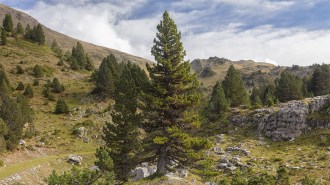 Plants
PlantsAncient trees’ gnarled, twisted shapes provide irreplaceable habitats
Traits that help trees live for hundreds of years also foster forest life, one reason why old growth forest conservation is crucial.
-
 Animals
AnimalsThe first known scorpion to live with ants carries mini hitchhikers
Small arachnids hitch a ride on the scorpion, possibly to get inside food-rich ant nests.
-
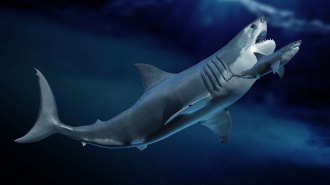 Life
LifeMegalodon, the largest shark ever, may have been a long, slender giant
The ancient shark is typically imagined with the scaled-up stout frame of a modern great white. But in life, the giant may have been more elongated.
-
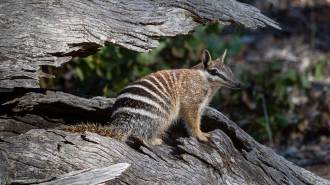 Climate
ClimateNumbats are built to hold heat, making climate change extra risky for the marsupials
New thermal imaging shows how fast numbats’ surface temperature rises even at relatively reasonable temperatures.
-
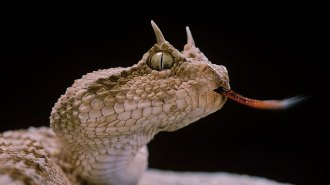 Animals
AnimalsWhy do some lizards and snakes have horns?
These reptiles’ horns can be an asset or a liability. A new study looks at the evolutionary roots of this wild headgear.
-
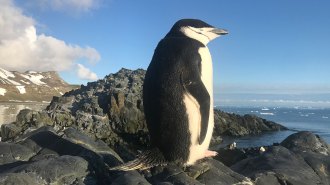 Animals
AnimalsThese nesting penguins nod off over 10,000 times a day, for seconds at a time
Micronaps net chinstrap penguins over 11 hours of sleep a day, offering some rest while staying vigilant against predators and competitors.
-
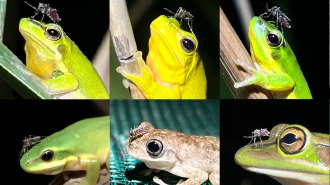 Life
LifeSome picky Australian mosquitoes may target frog nostrils for blood
The insects seem to sip from nowhere else on frogs’ bodies. Thinner skin or denser blood vessels near the nostrils might explain why.
-
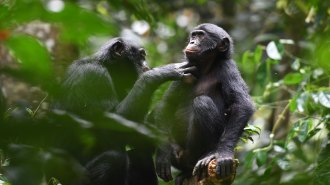 Life
LifeBonobos, like humans, cooperate with unrelated members of other groups
Cooperation between unrelated individuals in different groups without clear and immediate benefit was thought to be uniquely human. Its presence in bonobos may help explain its evolution.
-
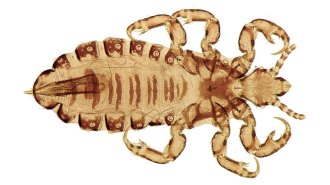 Life
LifeHead lice hitched a ride on humans to the Americas at least twice
The genes of head lice record the story of their human hosts’ global voyages.
-
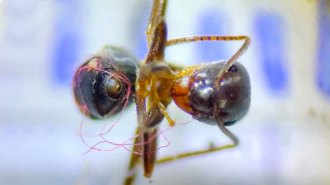 Life
LifeAnts may be the first known insects ensnared in plastic pollution
At this point, it’s unclear whether this type of trash harms insects, but the discovery highlights the ubiquity of plastic pollution in the wild.
-
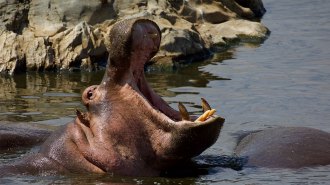 Life
LifeHippos might be ferocious fighters, but their big teeth make them terrible chewers
Among plant eaters, hippos are the worst chewers. Their huge tusks and front teeth keep the jaw from moving side to side to grind food, a study finds.
-
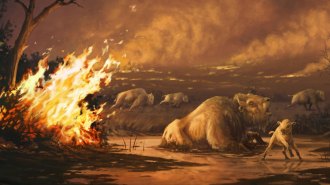 Life
LifeAround 13,000 years ago, humans and fire changed LA’s ecosystem forever
Rapid drying combined with human-made fires changed Southern California forever, killing off ancient bison, dire wolves and five other megafauna species there.